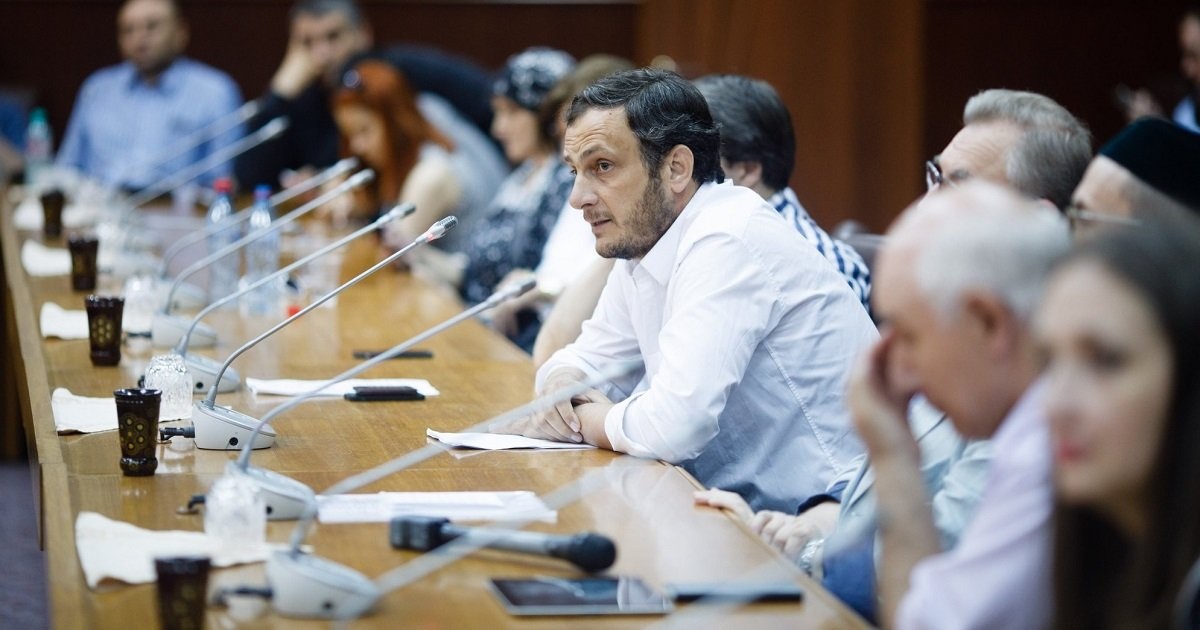Armenian church, Karabakh clan challenge peace efforts Will peace prevail despite opposition?
The protest movement against the successfully launched process of delimitation and demarcation of borders with Azerbaijan continues in Armenia. The Armenian Church (AAC), the Karabakh clan and the diaspora are particularly active in this case. In fact, they oppose the cause of peace.
Demonstrations in support of the "Tavush for Homeland" movement will be held in about 30 cities of 11 European countries on May 12. This is stated in a message circulated by the movement. Demonstrations will be held in Belgium, Bulgaria, France, Cyprus, Denmark, Greece, the Netherlands, Sweden, the UK and other countries.
It is obvious that Catholicos of All Armenians Karekin II is leading the political movement in Armenia today, Prime Minister Nikol Pashinyan told a press conference.
"This is simply obvious. And why should the Catholicos lead a political movement? Now the goal of this movement is also clear, because the representative of the movement has stated this. The goal of this movement, as they formulate it, is to bring the previous authorities to power in the Republic of Armenia. This scenario was presented after the 2021 elections. The leader of the "Armenia" bloc presented this scenario, how to realize the change of power in Armenia through the Church. What it means to bless means to lead, because a clergyman cannot utter a political text without the authorization and commission of the Catholicos. Obviously, the leader of this process is the Catholicos of All Armenians, and the number one beneficiary is Robert Kocharyan. This is a fact proven by public statements," Pashinyan said.
When asked whether the authorities are going to use brute force against the movement led by Archbishop Bagrat Galstanyan with the blessing of the Catholicos, Pashinyan replied in the sense that if someone is going to do something illegal, "the most brute force possible will be applied to him. If not, nothing will happen."
The question is - can Galstanyan's protest movement get anywhere? Or will the majority of the Armenian population not support this destructive position of the protesters, and the two countries will manage to bring the border clarification process to the end?
Foreign experts shared their thoughts on this issue with Caliber.Az.

Turkish political scientist, leading specialist of the Ankara-Moscow expert-analytical network Engin Ozer said that he is closely following the emerging situation in Armenia.
"It is really being rocked by the bishops and the patriarch. Do you know what this situation reminds me of? In the 12th century in Europe, the Catholic Church actually ruled the entire political life, and in many countries of the continent, the power of the Church even surpassed the power of monarchs. Approximately the same thing is happening now in Armenia. Of course, in the 21st century such a thing is unacceptable neither in Armenia nor in other countries. After all, Armenia's constitution states that it is a secular state," the pundit says.
In his opinion, it is obvious that the Karabakh clan, led by Kocharyan and his allies, will try to further undermine the relative stability by taking advantage of the protest sentiments over the government's decision to return four of its villages to Azerbaijan.
"Although the Armenians themselves did not live in them, they have been empty since the occupation. Things are heading towards a confrontation between the church and the government, and this is a very interesting trend. But still it seems to me that the AAC will not be able to provide effective, efficient resistance to the government, because, no matter how you look at it, the majority of the Armenian population supports Pashinyan's positions on most issues. That is, the focus on delimitation of borders and signing a peace treaty with Azerbaijan. Thus, I hope that there will be no too deep crisis between the AAC and the ruling forces, and the church will still retreat and return to its proper position," Ozer said.

Deputy director of the Kyiv-based Centre for Middle East Studies Sergei Danilov noted that international observers, whose competence in the South Caucasus region he knows, are quite skeptical about the opposition's ability, represented by Kocharyan and the protest movement, to bring about a change of power in Armenia.
"There are certainly notes of fear and uncertainty in the public atmosphere.
The use of a specific actor - the Armenian Apostolic Church - by Pashinyan's opponents in the political struggle is an additional evidence of the crisis in which the pro-Russian opponents of the Armenian prime minister find themselves," Danilov said.
In his opinion, Armenia fears that Moscow may stage bloody provocations in Armenia that could blow up the situation.
"In such a case, the advancement of the peace process between Armenia and Azerbaijan will be stalled indefinitely. But if Pashinyan and his cabinet can maintain control over the situation, the probability of peace between the two South Caucasus states is quite high," Danilov concluded.








